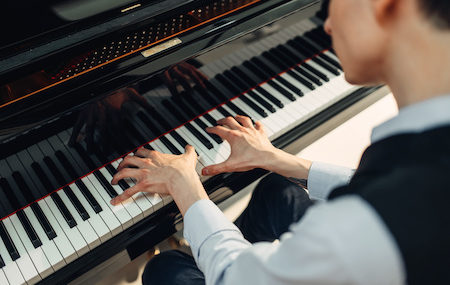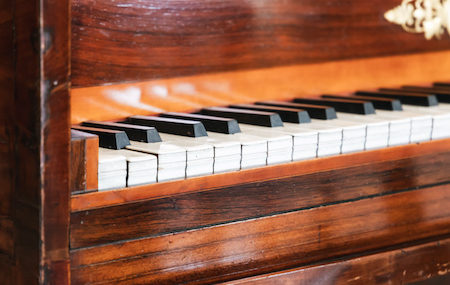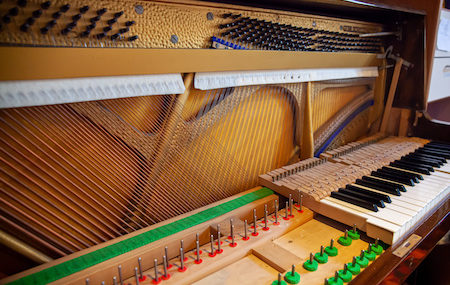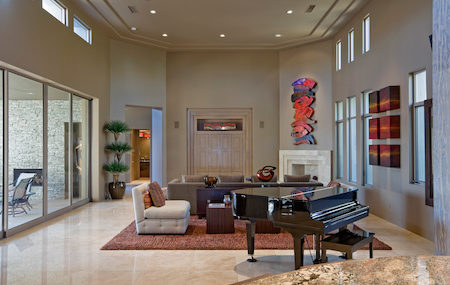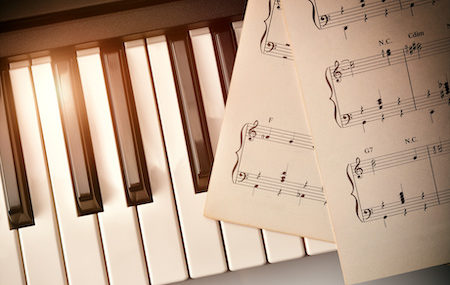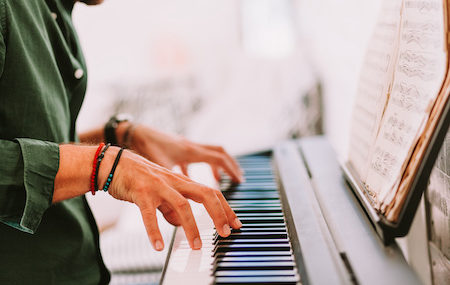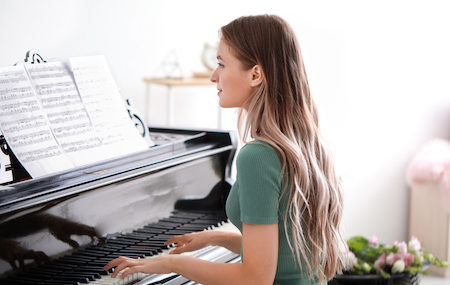Imagine needing a sweater – why not pick up any old thing you find on the street? Instinctively, you know it doesn’t work that way. What color do you need? Dressy or comfy? You carefully weigh your options until you settle on the perfect piece.
Yet many approach buying a piano with less regard. Should you really take the first free piano you find in the classifieds? Will it suit your needs?
Choosing the perfect piano is a thrilling yet significant decision that requires careful consideration. Whether you are a seasoned musician or a novice looking to embark on a musical journey, understanding your needs is the first step toward finding the ideal instrument.
As a piano dealer offering a range of new and used pianos, we understand the importance of matching the right piano to the individual player. It’s an art to select the perfect piano that brings you years of enjoyment.
Define Your Skill Level
One of the crucial factors to consider when selecting a piano is your skill level. Are you a beginner eager to learn the basics, an intermediate player looking to refine your skills, or an advanced musician seeking a professional-grade instrument? Identifying your skill level will help narrow down your options and ensure that the piano you choose aligns with your current abilities and future aspirations.
Determine Your Musical Style
Different pianos are suited to various musical styles. Whether you’re into classical, jazz, pop, or contemporary genres, understanding the nuances of your preferred style will guide you in choosing the right piano. For example, a grand piano with a rich, resonant sound may be ideal for classical music, while a digital piano with versatile features might be more suitable for your favorite rock tunes.
Consider the Space
The physical space available in your home or studio is another critical factor in selecting the perfect piano. Grand pianos, while elegant and impressive, require more space compared to upright or digital pianos. Measure the dimensions of your space and ensure that the piano you choose fits comfortably while leaving room for proper acoustics and ease of movement.
Budget Wisely
Setting a realistic budget is essential in the piano selection process. New and used pianos come in a range of price points, and it’s crucial to find a balance between your budget and the quality of the instrument. Discuss your budget with our knowledgeable staff, who can guide you toward options that meet your financial constraints without compromising on musical excellence.
Test and Play Different Models
Before making a decision, take the time to test and play various piano models. This hands-on experience allows you to feel the action, assess the tone, and evaluate the overall playability of each instrument. Our showroom provides a comfortable environment for you to explore and compare different pianos, ensuring that the one you choose resonates with your preferences and playing style.
Selecting the perfect piano is a personal and unique journey that begins with thoroughly assessing your needs. By considering your skill level, musical style, and hands-on experience with different models, you can make an informed decision that will bring joy and inspiration to your musical endeavors.
We’re dedicated to assisting you in finding the perfect piano that complements your skills, preferences, and aspirations. Visit our showroom today and let the music begin!
